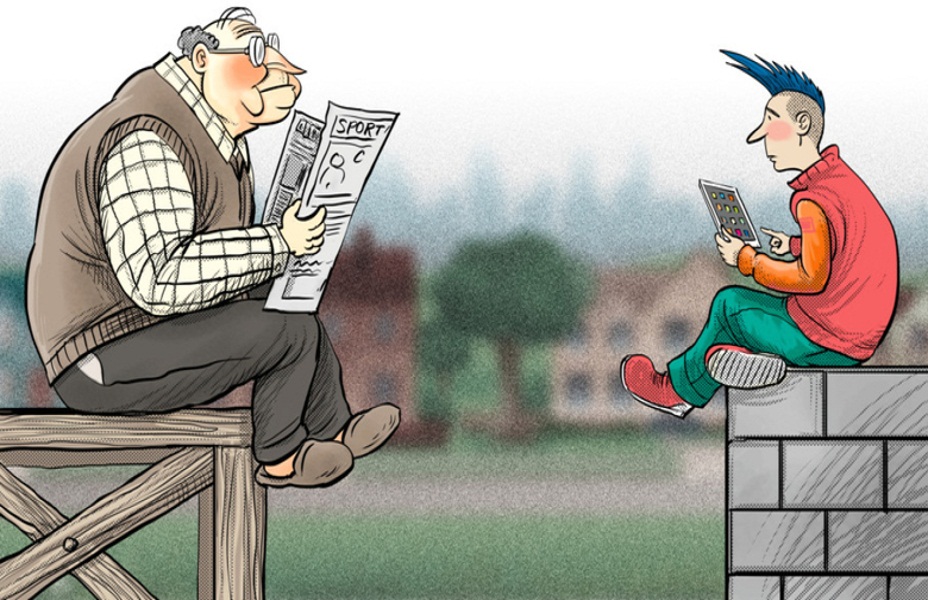Understanding 'Generation Gap': Why every generation thinks theirs was better

Published :
Updated :

"You have seen nothing. In our times, things used to be perfect!" - this is a common statement almost all of us have grown up listening to from our parents, and they grew up listening to this from their parents, and the cycle can go hundreds of years back unhampered. It's our inherent tendency to think that our time and our way of seeing the world and doing things are better than others. Why do we think this way?
Such a superiority notion stems from the phenomenon called the 'generation gap.' Simply put, the generation gap is a social and cultural divide that can create tension and misunderstanding between different age groups. Each generation has its own unique characteristics, experiences, and challenges that shape its values and beliefs, leading to a tendency to think that they are better than the ones that came before or after them.
Historical context
The concept of the generation gap first emerged in the 1960s and 1970s during a time of significant cultural and social change in the United States. The Baby Boomers, who were born between 1946 and 1964, came of age during this time and challenged many of the traditional values and norms of their parent's generation. They were vocal in opposing the Vietnam War, advocated for civil rights and women's rights, and embraced countercultural movements like hippie culture and rock music.
The Baby Boomers saw themselves as a generation that was ushering in a new era of freedom and equality, while their parents saw them as disrespectful and rebellious. Sounds familiar? Don't we often get scolded by our seniors or scold our juniors for doing something not approved by the conventional norms?
Coming back to the previous discussion, this generation gap was exemplified in the famous Woodstock music festival of 1969, which drew over 400,000 young people and symbolised a rejection of mainstream values and a desire for social and political change.
However, the generation gap phenomenon is not unique to the Baby Boomer era. Throughout history, different generations have had their own unique experiences and perspectives that have led to intergenerational tension.
For example, the Silent Generation, who were born between 1925 and 1945, were criticised by their parents for being too conformist and focused on material success, while they, in turn, criticised the Baby Boomers for being too rebellious and idealistic.
Modern examples
Today, the generation gap continues to be a source of tension and misunderstanding between different age groups. One of the most significant differences between generations today is the use of technology.
Millennials, born between 1981 and 1996, grew up with computers and the internet and are more comfortable with technology than older generations. This has led to a divide between younger and older workers in the workplace, with older workers often feeling left behind by the rapid pace of technological changes.
The 'Global' or 'Generous' generation, aka Gen G, is even more comfortable adopting robust technologies and leveraging their powers. Millennials feel years of lagging behind compared to Gen G and Gen Alpha.
Another area where the generation gap is evident is in politics. The rise of populism and nationalism in recent years has been fueled, in part, by a sense of intergenerational conflict. Younger generations are more likely to support progressive policies like universal healthcare and climate action.
In comparison, older generations are more likely to support conservative policies like limited government and free markets. This has created a divide between generations that can be seen in the results of recent elections and referendums worldwide.
One example of this divide can be seen in the Brexit referendum in the United Kingdom. Younger voters were more likely to support remaining in the European Union, while older voters were more likely to support leaving. This divide was not just based on age but also on education and social class.
Many younger, more educated, and more affluent voters saw Brexit as a threat to the UK's economic and social prosperity, while many older, less educated, and less affluent voters saw it as an opportunity to reclaim sovereignty and control over immigration.
Another example of the generation gap can be seen in the United States, where the issue of gun control has become a contentious political issue. Younger generations are more likely to support stricter gun control laws, while older generations are more likely to support the Second Amendment and the right to bear arms.
The generation gap will remain until the end of time as long as the world keeps advancing and changing itself compared to the previous generation. The more drastic the change in the advancement of technology is, the bigger the generation gap will be. And most of us will continue to assume our generation is better for many reasons like the inability to catch up to the trends, social chaos stemming from broken traditions, etc.


 For all latest news, follow The Financial Express Google News channel.
For all latest news, follow The Financial Express Google News channel.